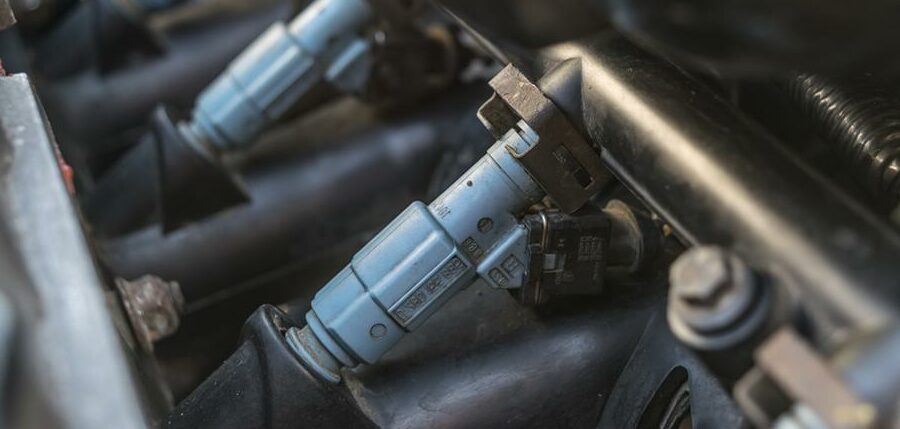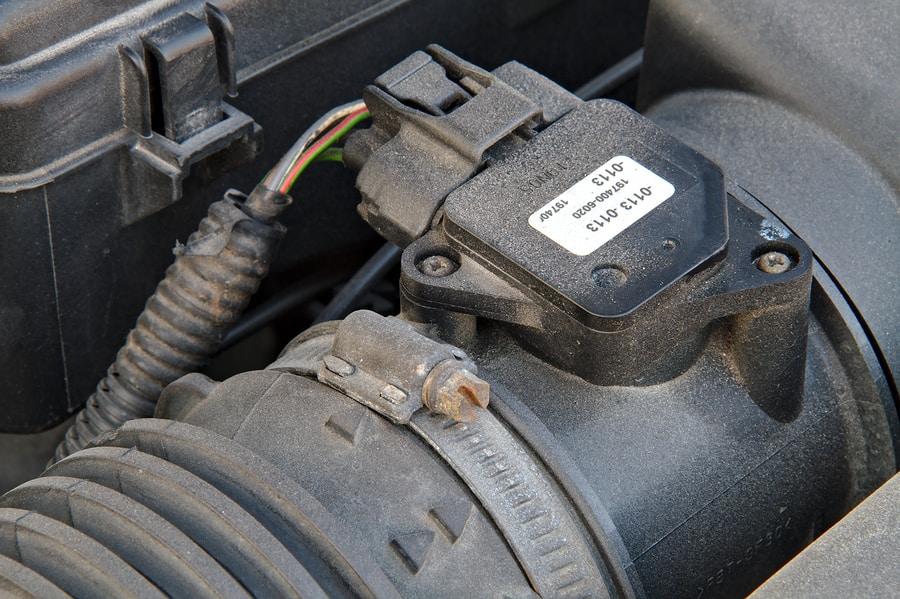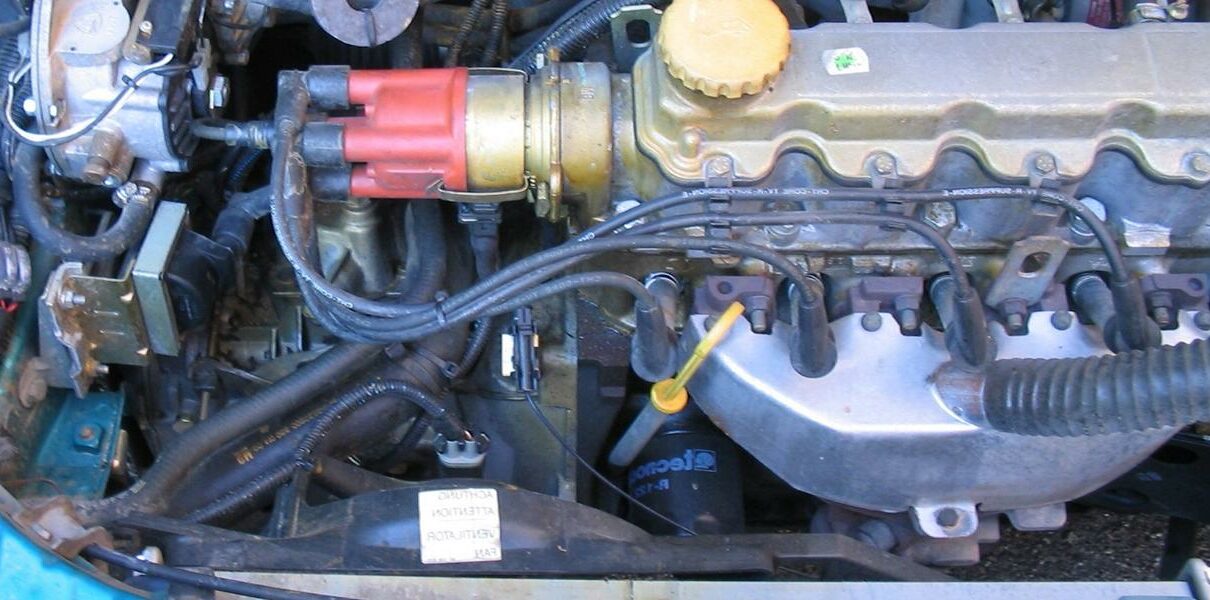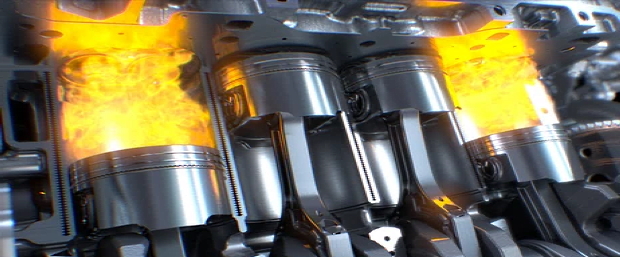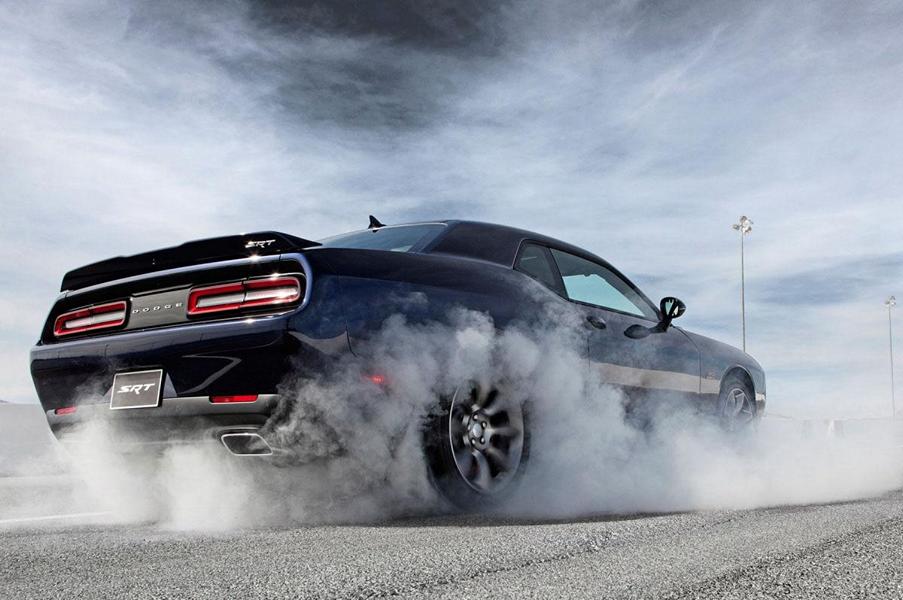If you’ve noticed your car jerks when you accelerate, it can be incredibly frustrating, inconvenient, and even dangerous. What would cause your car to jerk when you step on the gas, and what can you do to fix it? This guide will walk you through some potential issues and solutions.
Dirty Fuel Injectors
One of the most common culprits for car jerks when accelerating is dirty fuel injectors. Your fuel injectors deliver pressurized gasoline into the engine, allowing for combustion. When the injectors are clogged with deposits, your car jerks when accelerating because they cannot provide a steady flow of fuel into the engine. Signs your injectors are dirty and need to be cleaned include poor gas mileage, failed emissions tests, rough idling, long cranking times, or your car jerks when you step on the gas. To clean your fuel injectors and potentially remedy this issue, some quick solutions include running Fuel Injector Cleaner through your gas tank, or having a mechanic use pressurized tools to deeply clean the injectors.
Spark Plugs Not Firing Properly
Another reason for car jerks when accelerating is spark plugs that are not firing correctly. Spark plugs deliver the high-voltage electrical current that ignites the fuel in your engine to create combustion and allow acceleration. When the spark plugs misfire or fail to fire entirely, acceleration will be interrupted in your vehicle. Loose connections, excess deposits, improper gapping, or wear can all cause spark plugs to not fire properly. Replacing old spark plugs with new ones is a simple repair if this is the issue behind your car jerks. Your mechanic can test and change them in under an hour. Using fuel injector cleaner can also help remove some deposits affecting spark plug firing.
Issues with the Mass Airflow Sensor
The mass airflow sensor in your car measures the amount of air flowing into your engine and helps ensure your fuel injectors are delivering the right amount of fuel to match. If this sensor is faulty or sending incorrect data, fuel delivery will be impacted and can cause your car jerks when accelerating. A failing mass airflow sensor may include symptoms like check engine lights, stalling at stoplights, decreased gas mileage, or car jerks when you hit the gas. A technician can inspect the sensor, clean it, or determine if replacement is required to resolve the issue.
Transmission Not Shifting Gears Smoothly
The transmission in your vehicle is responsible for smoothly shifting between gears to aid acceleration, deceleration, and maintain a proper speed. If the transmission is not working properly, it may have issues shifting gears at the right times. As a result, you will experience noticeable jerks in acceleration as the car struggles to appropriately change gears. Common signs your transmission may not be shifting properly include the check engine light and illuminated warning lights, burning smells, leaks, car jerks and vibrations during acceleration, or grinding noises from the transmission. In some cases, a leak or blockage in fluid or air lines may be easily repaired to restore smooth gear changes. However, significant transmission issues usually have complex solutions. Seeking out a trusted mechanic to properly diagnose and repair the transmission will be necessary.
Ignition Timing Issues in the Engine
Your engine depends upon the precise ignition timing of fuel injection and spark plug firing to run smoothly. If the ignition timing is off in your vehicle, either too advanced or too delayed, it will cause poor combustion and your car to jerk dramatically when you accelerate as it struggles to build momentum. Vacuum leaks, faulty sensors or connectors that control timing, or mechanical issues in the engine can all impact ignition timing and lead to car jerks. An engine diagnostic test from your repair shop can determine if ignition timing issues are behind your acceleration problems. They can then adjust or repair components like sensors, seals, solenoids, and camshafts to properly restore timing and resolve the jerking.
How to Fix Car Jerks When Accelerating
If your vehicle is jerking every time you hit the gas, avoiding high-speed trips and abrupt accelerations. Take your car into a certified repair shop so technicians can run tests. Check for diagnostic trouble codes that may help pinpoint the source. Describing the issue in detail about when jerks happen and any related symptoms you notice can also help your mechanic troubleshoot possible culprits behind car jerks faster.
Be prepared for a potential part replacement like spark plugs, sensors, or fuel injector service to solve the problem. Knowing common reasons for acceleration issues that cause car jerks can help you discuss solutions more informed. But keep an open dialogue with the mechanic about additional inspections or driving tests to help get your car running smooth again!
Prioritizing Smooth Acceleration Repairs
While an occasional small car jerk may only be a minor annoyance, consistent acceleration issues or dramatic jerking when trying to speed up could indicate serious problems that will only worsen without repair. Listen to what your car is trying to tell you when symptoms pop up. Ignoring vehicle issues like consistent car jerks allows underlying problems to expand and ultimately lead to more expensive parts replacements or repairs down the road.
Getting acceleration problems properly inspected right when you first notice them makes fixing your car jerk issues more affordable. Investing in quality parts and repairs resolves the frustrating symptoms and also extends the lifetime of your vehicle. So whether it ends up being dirty injectors, transmission repairs, or full engine timing adjustments, take car jerks seriously! Prioritizing and budgeting repairs for smooth acceleration helps prevent declining performance and costly engine damage over time.
Driving Habits to Prevent Car Jerks
While vehicle issues cause most acceleration jerks, certain driving habits can aggravate the problem or accelerate the wear on related engine components. Here are some tips to help minimize jerky acceleration in your car:
- Avoid aggressive starts and jackrabbit accelerations from stoplights or stop signs whenever possible. This puts extra strain on components like spark plugs, fuel injectors, transmission gears, and more. Smooth, gradual acceleration is best for engine health.
- Change gears at reasonable RPMS, not too low or high. This allows the transmission to engage properly and avoid abrupt torque changes between gears that cause jerking.
- Check your owner’s manual and do not haul or tow beyond your vehicle’s recommendations. Overloading strains the engine and drivetrain.
- Follow the maintenance schedule for oil changes, fluid checks and fills, filter changes, etc. This helps keep all systems working their best.
While driving behavior cannot necessarily prevent car jerks related to component failures, practicing good maintenance and acceleration habits preserves your vehicle systems. Combine smart driving with prompt check engine light and performance issue repairs for the best chance at smooth, jerk-free acceleration!
 tuningblog.eu Euer Magazin rund um Tuning am Auto
tuningblog.eu Euer Magazin rund um Tuning am Auto

